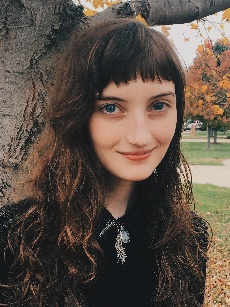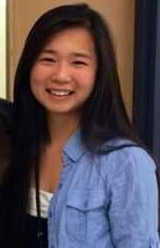This group is a host for research into the use of high performance computing (HPC) for primary genomics analyses, such as alignment, variant calling, genome assembly, and RNASeq. By its nature, this research is highly collaborative. Every member of our team is affiliated with multiple departments or campus initiatives. The student participants in this group serve as a bond between the campus faculty using computational genomics analyses in their research, and the NCSA experts in HPC, storage, networking, databases, etc. Explore this page to find out who is involved, how we are connected, and what projects are currently ongoing.
Senior Research Scientist, National Center for Supercomputing Applications
Research Assistant Professor, Institute of Genomic Biology
217-300-0568
Projects
B.S. Molecular and Cellular Biology (2016) M.S. Bioinformatics (2018) Department of Crop Sciences, UIUC CompGen fellow advised by Dr. Matthew Hudson
| Mutation profiles of cancerMr. Weber is developing machine learning methods to effectively stratify cancers based on the statistical properties of mutations found in afflicted individuals. Cancer stratification is predictive of disease outcomes, drug response and drug metabolism. Effective computational approaches based on total data acquired to-date can make this process cheaper in the clinic. Matt collaborates with the Ontario Institute for Cancer Research to make sure his models are realistic | |
Junyu Li B.S. Molecular and Cellular Biology (2017) minor in Computer Science SPIN fellow
| Genomic variant calling by assemblyJunyu and Mr. K are focusing on a method to detect genomic variants by assembly. They are employing the software Cortex-var, which constructs de-novo genome assembly on multiple sequencing samples, and then compares the resultant de Bruijn graphs to detect where they diverge, indicating a potential variant. This could be a good method for detecting novel variants, especially repeats and complex rearrangements in complex genomes, such as polyploid plants and cancer. Junyu and Mr. K work as an interdisciplinary team. Junyu provides the expertise in math and computer science to automate the Cortex-var workflow and interpret the algorithm. Mr. K is using his strong background in genomics to interpret, clean-up and validate the output. | |
B.S. Crop Science (2016) Plant Biotechnology, Molecular Biology M.S. Bioinformatics (2018) Department of Crop Sciences, UIUC Graduate Fellow in the College of ACES advised by Dr. Matthew Hudson | ||
Jennie Zermeno BS Integrative Biology (2017) | Benchmarking performance and accuracy of genomic variant calling softwareJennie and Tiffany collaborate to document our efforts in benchmarking variant calling on HPC systems. We have run variant calling experiments on 500 genomes in parallel, on Blue Waters, to identify performance bottlenecks when using the GATK best practices workflow. Jennie is documenting this work in a publication.
We have also tested a number of alternative software, such as Isaac, Genalice, Sentieon, as well as Dragen - a hardware solution. Tiffany is documenting the pros and cons of each of these excellent approaches in a separate manuscript. | |
Tiffany Li BS Integrative Biology (2018) minor in Computer Science | ||
Angela Chen M.S. Statistics (2017) Department of Statistics, UIUC CompGen fellow advised by Dr. Alexander Lipka | Accurate and scalable GWAS algorithmsAngela and Khory are collaborating to improve the scalability and parallelization of the statistical software TASSEL5, widely used for conducting genome wide association studies (GWAS) in plants. Angela is writing a manuscript to demonstrate that her new stepwise epistatic model selection procedure has greater statistical power compared to other methods. However, the Java-based TASSEL5 cannot be easily parallelized across multiple nodes in a computational cluster, to run on modern, relevant datasets, which tend to be very large, such as the Alzheimer's SNP panel. Khory is providing the expertise in computer science to convert this Java code into C++ and parallelize it in HPC environment. | |
Khory Wagner advised by Dr. Vologymyr Kindratenko | ||
| Jacob Heldenbrand | NCSA Industry | |
Ryan Chui B.S. Biochemistry (2016) M.S. Bioinformatics (2017) | ||
Noah Flynn Bioengineering SPIN fellow | Evolution of molecular networks and persistence of organismsConstruct and compare gene, metabolic and signaling networks from organisms across the tree of life. | |
Aishwarya Raj B.S. Biochemistry (2019) minor in Bioinformatics | ||
Ellen Nie BS. Biochemistry (2018), minor in Computer Science | Big data network transfers for genomicsEllen is benchmarking the network transfers of genomic data across multiple sites. She wants to understand the limitations of modern network backbone for big data genomics, and to facilitate correct configuration of the endpoints to resolve those limitations. Ellen is looking at the sites of our collaborators in Toronto, South Africa, Sudan, and the UK. | |
Nainika Roy Molecular and Cellular Biology SPIN fellow | Data formats and data structures in computational genomics |
Other Collaborations
Matthew Hudson Bioinformatics Crop Science | HPCBio, Carver Biotechnology Center | |
Elliott Rodriguez Computer Science SPIN fellow | NCSA Scientific Software and Applications + University of Khartoum
Portable variant calling workflow
H3Africa Consortium | |
Azza Ahmed Computer Science Bioinformatics
| ||
Morgan Taschuk Bioinformatics | OICR | |
Paul Hatton | University of Birmingham |





